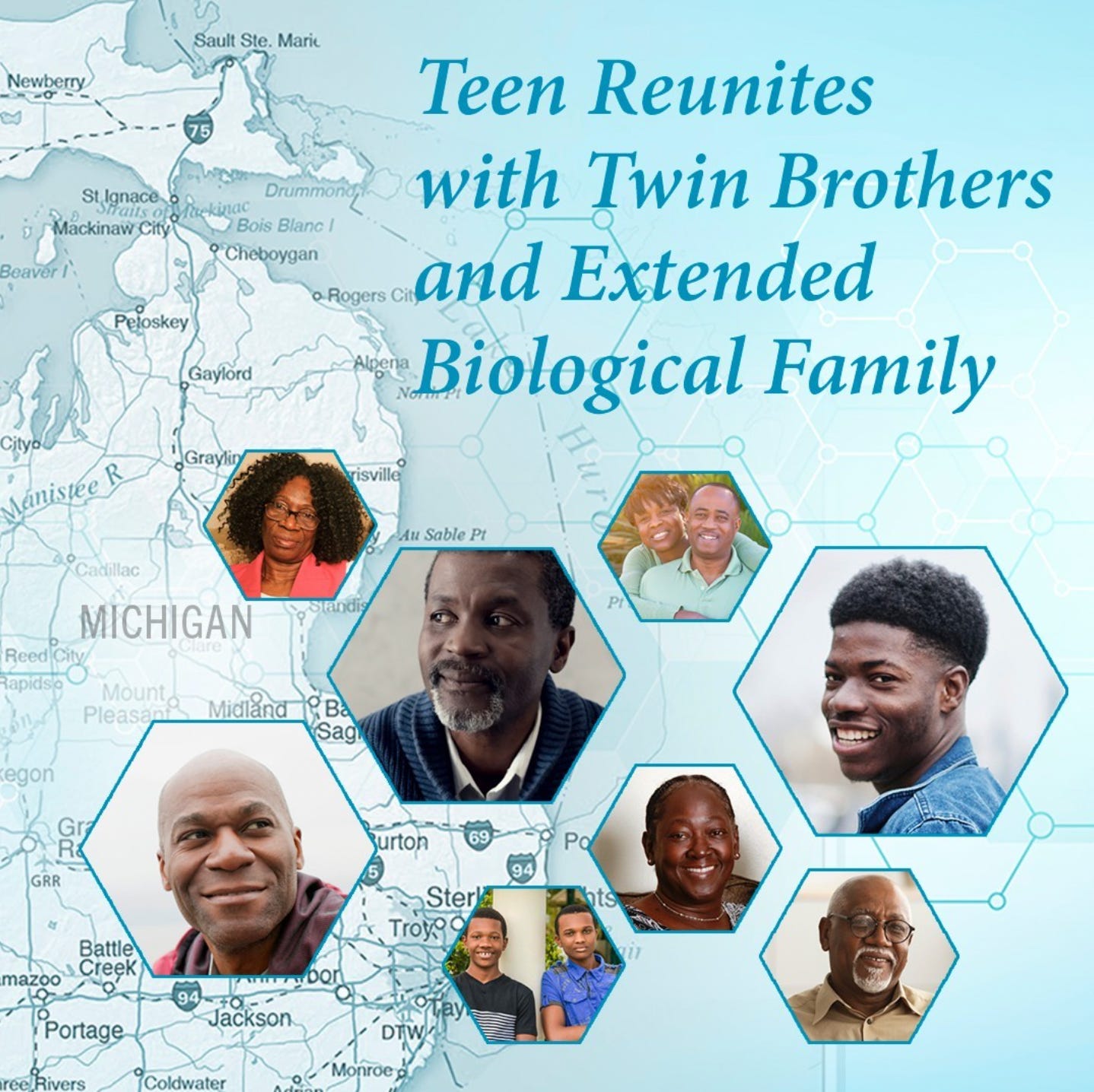Season’s Greetings, Blue Roomies!
During this week between major holidays, I’m enjoying some down time at home—the white board to-do list is going swimmingly—and in that vein, I bring you an encore post from a few years ago, before I was even on Substack, with a few italicized additions… plus a special opportunity at the end.
Take it away, Past Me:
I don’t know about you, but things have felt especially heavy this week. [Here I listed some disasters du jour… but there are plenty to take their place this year too. Sigh.] I’ll admit—I’m struggling.
In case you are too, I want to introduce you to one of the people who inspires me when the world feels like a cold place. Mr. Rogers said to look for the helpers, and Jennifer Jacobs is certainly one of those. A former nuclear engineer and West Point grad, she’s now founder and CEO for Connect Our Kids, which puts powerful tech tools in the hands of social workers so they can help kids in the foster system connect with extended family when parents aren’t able to care for them. A combination of foundation money and donations funds the company’s work, and social workers can use the search tools for free.
This plucky startup has been at work for a number of years, and scored a major victory some time ago when the entire state of Ohio would be using Connect Our Kids’s tools to support the 20,000 children who are in their foster system at any given time. [You can get to know their many other community partners at their Instagram page.]
The idea began many years ago, when Jennifer read a story about the grievous state of the foster-care system in the US. Given her background, she knew the intelligence community had used technology to map potential terrorist networks for years, and assumed there must be something similar in place to help social workers easily find relational alternatives—grandparents, aunts and uncles, cousins—for children who’ve been removed from a parent’s care. She shared the idea with a number of folks, hoping to be proved right: that this was already happening, and/or that this was someone else’s job, not hers.
Meanwhile—and this is 100% her framing, not mine—she had this pastor, a woman who also had three little kids just like Jennifer did. This pastor insisted on preaching the inconvenient idea that our faith requires something of us. Lots of folks preach that message, but this particular pastor had never met anyone who took it quite so intensely to heart. Jennifer knew what was holding her back was fear and nothing else. She couldn’t bear the thought of getting to the end of her life and saying, “I had an idea once. It could have mattered.”
Jennifer’s story is one of my favorite kinds of stories: the “somebody ought to,” or relatedly, what we might call a Shirley story: “surely someone’s already thought of this.” (Forgive the gratuitous Airplane reference.) It turns out, this idea hadn’t been done, and that “somebody” was her.
I’ve followed Jennifer’s work for years, and can imagine how hard it is to run a startup, especially in a field as challenging and emotionally fraught as this one. Her own kids, like my three, would be plenty to keep her busy. (I recently told her, “About those sermons… What can I say. I’m… sorry?” She laughed and said, “You are NOT sorry and neither am I.”)
Jennifer and I caught up some time ago, and I wish I had space to share all of the stories she shared about the impact this idea, and these tools, are having on kids. I urge you to visit the Connect Our Kids blog, where you can read stories like Ryan’s, who had bounced around foster-care situations until a social worker ran a search and found a cousin who’d lost track of Ryan but had been looking for him for years. Fairy-tale endings are rare if not unheard of when it comes to the traumas kids in the foster-care system experience. What we can say is that Ryan and his cousin were able to reunite after years of disconnection… and when he ages out of the system, he will not be alone. He will be surrounded by family. And having those connectional ties is really, really important for these vulnerable young people:
Hear more directly from Jennifer as well as COO Jessica Stern, as they tell the story of Connect Our Kids here:
Why am I telling you all this? First, because as I said, folks like Jennifer are what keep me going. Second, because I bet many of my readers are connected to social workers, child advocates, and CASA volunteers—folks who might like to network with Connect Our Kids or learn more about their services. Please share this post with them:
Or, connect directly with them at their website. Donations are always appreciated. And this weekend, I’m making that super easy for you. As the year comes to an end, I’d like to give Connect Our Kids a boost. I’ve been running a discount for the Blue Room—15% off annual subscriptions—between now and December 31. This weekend I’ll be donating the full amount of all new annual subscriptions to Connect Our Kids.
Supporting subscribers get two additional posts per month, and much of that content in 2024 will include articles, resources, interviews, and video/audio content in support of the topic of my next book. (And coming this Monday for supporting subscribers: six better alternatives to New Year’s Resolutions!)
Thanks again for reading, and as always: steady on.





